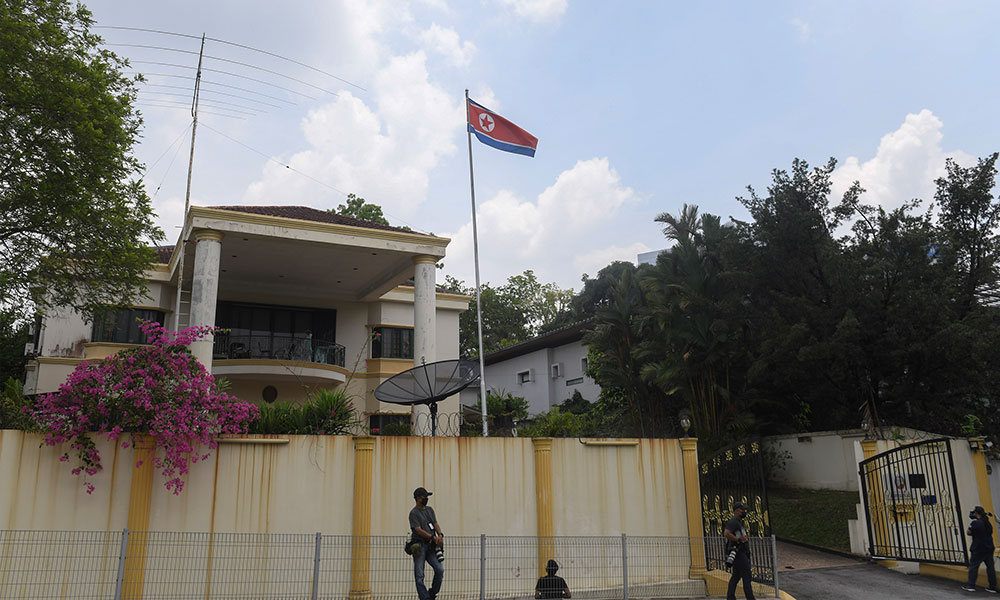COMMENT | Extradition is an important procedure to overcome jurisdictional barriers and it facilitates the effective suppression of crimes. According to Oppenhein, extradition is defined as “delivery of an accused or a convicted individual to the state where he is accused of, or has been convicted of, a crime, by the state on whose territory he happens for the time to be”.
Under international law, it is required to have an extradition treaty between the two countries in order for the requesting state to request extradition of fugitive criminals from the requested state. The law of extradition varies from country to country and it could also be subjected to foreign policy considerations of individual countries.
Malaysia’s legislation on this matter is Extradition Act 1992. In addition, there is an Extradition Treaty between the United States of America and Malaysia, entered into force in June 1997.
There are two fundamental requirements for extradition: the existence of extradition treaty and the offence must be an extraditable offence satisfying the double criminality requirement.
Section 6 of the Extradition Act 1992 defines extraditable offence as an offence punishable by the laws of the requesting state as well as by the laws of Malaysia with imprisonment of not less than one year or with death.
Recently, the US charged a North Korean businessman with money laundering and conspiracy crimes. These offences are considered serious offences under the US law, particularly under the Racketeer Influenced and Corrupt Organizations Act (Rico).
As for Malaysia, there is no general statute on conspiracy but it has Anti-Money Laundering, Anti-Terrorism Financing and Proceeds of Unlawful Activities Act 2001, where the maximum punishment for the crimes under the Act can be 15 years' imprisonment. Double criminality requirement is therefore satisfied.
As long as the double criminality requirement is satisfied, Malaysia would cooperate for the execution of extradition procedures.
In PP v Ottavio Quattrocchi, [2003] 1 MLJ 225, the government of India requested Malaysia for the extradition of an Italian national alleged to have committed offences while he was in India. However, India failed to submit the necessary documents required under Section 6 of the 2001 Act to satisfy the double criminality requirement. Therefore, the extradition request by India was not successful.
Malaysia and India then signed an extradition treaty in 2010. The most recent yet again unsuccessful extradition request made by India was the request to extradite Zakir Naik. Despite the existence of the extradition treaty, the refusal of the extradition request in this case was unclear and subject to criticisms by legal experts.
Under Section 8 of the Extradition Act 1992, Malaysia may refuse to extradite the fugitive based on three mandatory grounds:
- if the offence is of a political character;
- if the extradition request was made for the purpose of prosecuting the person on account of his race, religion, nationality or political opinions; and
- if prosecution for the offence in respect of which his return is sought is, according to the law of that country, barred by time.
In certain circumstances, the home minister, at his discretion, may refuse the surrender or the return of a criminal if he is a citizen of Malaysia. This, however, did not happen in the case of Chua Han Mow v Superintendent of Pudu Prison [1980] 1 MLJ 219.

The extradition request was made by the US to extradite the accused, Mun Chol-myong, to be tried on offences relating to narcotic drugs alleged to have been committed while he was in the US. Although there was no extradition treaty between Malaysia and the US at that time, the Session Court of Kuala Lumpur decided that the accused be extradited as the alleged offences were crimes within the ambit of Extradition Ordinance 1958.
In this recent case, the extradition of a North Korean national, Mun, to the US by Malaysia was in full compliance with the extradition treaty entered between the two countries as well as the extradition law of Malaysia.
However, it is important to note that despite being bound by the extradition treaty, Malaysia may refuse extradition requests if such requests undermine its sovereignty as an independent nation. In such cases, foreign policy considerations might play a major role in the denial of extradition requests.
Without a doubt, Malaysia acted in conformity with the rule of law in extraditing Mun to the US. He is now undergoing criminal proceedings over money laundering in a US court.
FARIDAH SU WAI MON is a lecturer at the Faculty of Law of Multimedia University. MOHD HAZMI is associate professor at the Faculty of Syariah and Law, Universiti Sains Islam Malaysia.
The views expressed here are those of the author/contributor and do not necessarily represent the views of Malaysiakini.

